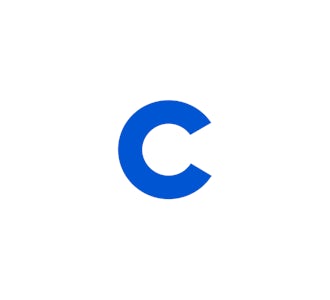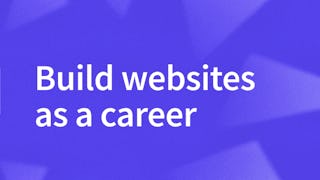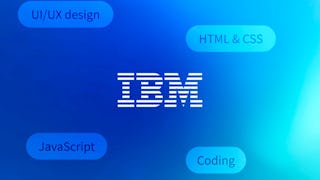![[Featured image] A full-stack developer wearing a blue and red-striped sweater sits at a wooden desk in a home office working on a desktop computer.](https://images.ctfassets.net/wp1lcwdav1p1/6jlzejupy0wivgSFx7rgpA/f9110a109222f6a7e6f1f691f7d911f7/GettyImages-968890648.jpg?w=330&h=216&q=60&fit=fill&f=faces&fm=jpg&fl=progressive)
What Is a Full-Stack Developer?
A full-stack developer helps build and maintain both the front-end and the back-end of a website. Learn about full-stack developer skills, salary, and how you can become one.
December 9, 2021
Article
As an entry-level front-end developer, you create websites and applications with web languages that enable seamless interaction. Get started in this career path by building the right skills.

Learn the basics of front-end development

Skills you'll gain: HTML and CSS, Bootstrap (Front-End Framework), Responsive Web Design, Front-End Web Development, User Interface (UI), JavaScript Frameworks, Web Design and Development, Web Applications, Web Development Tools, React.js, General Networking
Beginner · Course · 1 - 4 Weeks

Skills you'll gain: Jest (JavaScript Testing Framework), Version Control, UI/UX Research, Usability Testing, Responsive Web Design, Data Structures, Unix Commands, HTML and CSS, Git (Version Control System), Persona (User Experience), GitHub, Interaction Design, Bootstrap (Front-End Framework), React.js, Mobile Development, Front-End Web Development, Algorithms, Web Development Tools, Javascript, Cascading Style Sheets (CSS)
Build toward a degree
Beginner · Professional Certificate · 3 - 6 Months

Skills you'll gain: Bootstrap (Front-End Framework), Software Development Life Cycle, Software Architecture, React Redux, Cloud-Native Computing, Responsive Web Design, NoSQL, Git (Version Control System), GitHub, Webpack, Application Development, MongoDB, Agile Methodology, Cascading Style Sheets (CSS), React.js, Browser Compatibility, Software Design, HTML and CSS, User Experience Design, Engineering Software
Beginner · Professional Certificate · 3 - 6 Months
As an entry-level front-end developer, you’re expected to know the basics of web languages like HTML, CSS, and JavaScript to craft how users navigate the site or app. You need to have strong skills in attention to detail, problem-solving, collaboration, and communication, in addition to technical skills. Explore our free resources below as you take the first steps in your front-end development career:
Find your career track: Web Development Career Paths: Explore Roles & Specializations
Test your skills: Front-End Development Skill Assessment
Watch on YouTube: Web Development Skills: Ultimate Guide for Beginners
Ready to start learning? Explore our catalog of front-end development courses for beginners or accelerate your career growth with a Coursera Plus subscription. When you enroll in either the monthly or annual option, you’ll get access to over 10,000 courses.
Entry-level front-end developer can expect to make a median total pay of $83,000 with 0-1 years of experience, according to Glassdoor*. That number goes up to $92,000 per year with 1-3 years of experience.
*Glassdoor. “Front End Developer Salaries, https://www.glassdoor.com/Salaries/front-end-developer-salary-SRCH_KO0,19.htm.” Accessed September 19, 2025.
Front-end development is the design and programming of websites, applications, and other software tools that people interact with. Back-end development, on the other hand, creates the logic and frameworks that enable the front-end to work properly, by working with databases, servers, and application programming interfaces (APIs) to integrate the processes in a functioning structure.
To become a front-end developer, you’ll want to build your skills in the three web languages HTML, CSS, and JavaScript. You’ll also want to develop a basic understanding of SQL and NoSQL, frameworks, and responsive design. Beyond the technical skills, problem solving, creativity, and communication are useful to have. Many entry-level roles seek candidates with bachelor’s degrees, so consider earning a degree in computer science, or pursue a professional certificate to gain job-specific skills, before applying to entry-level positions.